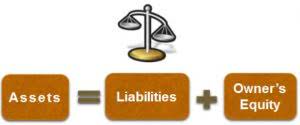They are occasionally required to put in extended hours and as a result, they frequently receive more compensation. Commissions are paid based on a percentage of sales made or a fixed amount per sale. Wages, salaries, bonuses, and commissions are compensation received by employees for services performed. Food servers, baggage handlers, hairdressers, and others receive tips as gratuities for services performed. In this guide, we’ll explain the difference between hourly wage versus salary pay, the pros and cons of each and how to determine which is best for your business.
- However, commissions can be risky because employees might not receive a commission if they do not generate any sales while working for the company.
- It is usually calculated based on the number of hours worked and the rate per hour.
- The employer and employee are bound by a contract that ensures that the former will pay an employee a fixed monthly amount in return for their service.
- On the other hand, employees who are paid wages are generally entitled to overtime pay when they work more than a certain number of hours in a week, as mandated by labor laws.
- The mandated minimum wage serves to protect workers’ ability to obtain essential goods.
- A company which cannot pay minimum wage to its employees does not hold the right to exist.
Salaries and Wages Payable: What They Mean and How to Record Them
However you are paid, only you can determine if the amount of hours you actually work—and what that means for your personal life—is worth your salary. In the United States, some lower-salary positions are still eligible for overtime rates, based on federal and state laws. In the UK, whether salaried personnel is paid for overtime for extra work done depends on their employment contract and any agreements the employer might have with a trade union.
Important Differences
As a result, it is possible that a worker who is paid on commission will earn more money than a person who is paid a salary, but it is also possible that they could earn less of a wage. The term “salary” refers to a predetermined amount of money that is paid to an employee on a consistent basis, typically once per week or once per month. A worker’s portion of the sales that they generate is referred to as a commission. While this can https://www.bookstime.com/articles/procurement-automation mean earning extra for overtime, it means income can fluctuate if work hours vary.
Top 5 Differences
The differences between a wage, a salary and a commission.If you are looking for a new job, it is important to be aware of the compensation package that will be offered to you. You might be offered a wage, a salary, or a commission, and each of these options comes with its own set of benefits and drawbacks. Wages and salaries are two types of remunerations that should be distinguished when recruiting employees so that the employees are paid fairly, and the company does not violate the employment laws. This distinction not only helps identify the right pay for the employees but also helps control payroll to a very large extent. On the other hand, Tom works as a cashier at a local grocery store and salaries and wages is paid an hourly wage.


As an employer, the good news is that you don’t have to limit yourself to one approach. Tailoring your compensation strategy based on each job position allows you to optimize your workforce management. This is where companies pay employees in cash, although this is becoming less common due to the advances in online banking.
- Employers must comply with these labor laws to ensure that workers receive fair compensation for their work.
- It’s most commonly distributed in monthly or bi-weekly installments, but it can also be paid out annually or weekly.
- If the company provides those benefits, it can profit from the spread between the two costs.
- Wages are one of the primary expenses of an organization, comprising an especially high proportion of total expenses in service-oriented firms.
- In the United States, for example, pay levels are influenced mainly by market forces, while in Japan seniority, social structure and tradition play a greater role.
- Payment systems process salaried compensation as fixed amounts regardless of attendance, while waged compensation requires precise hour-for-hour calculation.
It is possible that a salary is the ideal solution for you if you are looking for a steady income. On the other hand, commission-based income might be a better fit for you if you are willing to https://www.nizamedilines.com/automate-invoice-processing-with-machine-learning/ take on a greater level of risk in exchange for the prospect of earning more money. Wages are remunerations given to employees about the amount of work done or the number of goods produced. They may be determined on an hourly rate or based on the number of pieces produced, which makes them very flexible. According to the Online Etymology Dictionary, the term ‘Salary’ meaning ‘compensation, payment’ first appeared in the English language in Britain in the late thirteenth century.


